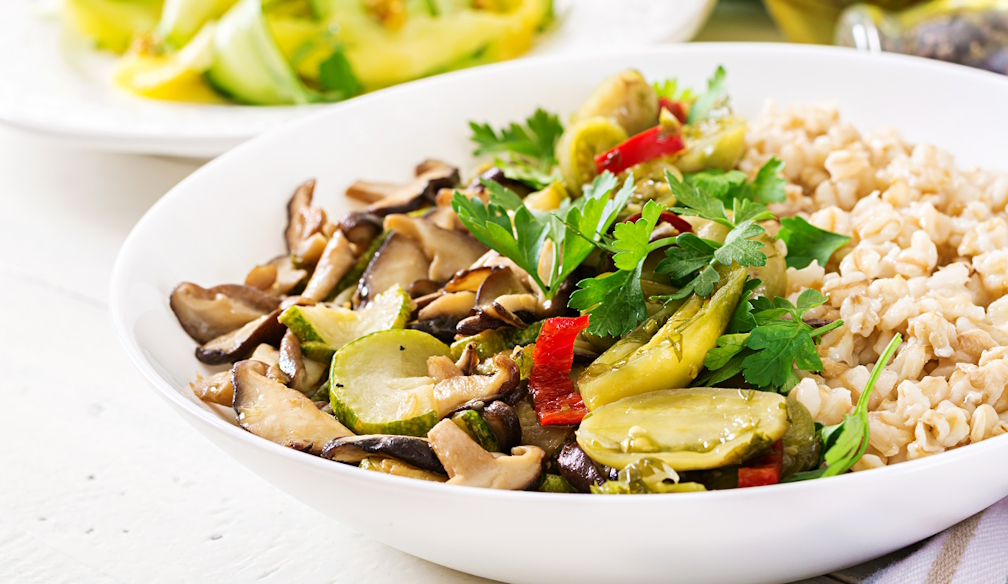The Unpleasant Problem Brewing for Vegan and Grain Free Homeowners

The number of plant-based households is on the rise. In fact, Vegan living is thriving in Australia. We’ve gone from quarter of a million vegans to more than 1.3 million in the last five years. And we’re not alone. In the USA, vegan households are up more than 100% in Millennial and Gen Z households compared to Gen X. And, it’s not just vegans. Grain free households, which may include celiac, keto or diabetic households, have a wide choice of alternative ingredients newly available on supermarket shelves.
This presents a modern problem. Modern Australia, including the modern Australian kitchen, was built on meat and three veg. Modern vegan ingredients may contain a world of nutritional benefits for bodies, but they’re uniquely rough on your home’s plumbing. And no, it’s not because of all that fibre, it’s because some of the key vegan ingredients pose a unique threat to your plumbing.
“There is a single solution to this, don’t put anything down your sink. But, it’s easier said than done. The very best food trap in your sink will still let fine grains and fats pass. Some of these dietary adjustments are ancient, rather than modern, but they can create havoc in modern plumbing” said John, Salmon Plumbers Brisbane.
Lentils, chickpeas and other dried pulses
Is there any food more versatile than the humble lentil? From curries to bread making, thickeners to meat alternatives, lentils, chickpeas and other dried pulses play a major part in the vegan diet. What’s the problem? Dried pulses require rehydration. Put a cup of chickpeas on to soak and you’ll find you’ve got 3 or 4 cups of chickpeas to cook. In their dried form, they’re very small, small enough to get through standard drain guards in your sink. Who hasn’t lost a few chickpeas or lentils while rinsing them? Every chickpea or lentil that gets down your sink will sit there, swelling. Spill a handful of lentils while going through the lengthy rinsing stage and you’ve got yourself an instant plumbing disaster brewing.
Coconut flour
Coconut flour comes only second to almond flour as a grain free alternative. The thirsty flour. One tablespoon of coconut flour drinks every drop of fluid from your cake mix. Unlike wheat flour, coconut flour swells, and fast. Filled with water, it forms a solid, tough block. Ideal for baking wheat free cookies, and clogging drains.
Psyllium husk
The go to binding agent for vegan and grain free baking. Like coconut flour, psyllium husk is thirsty, swelling instantly when combined with fluids. But it’s also binding. Used as an aid to “keeping a baking project in one piece” psyllium husk flour, in your pipes, creates a tough, well bound barrier that leads to severely blocked drains.
High fat grain replacements
Keto diets promote low carbohydrate, high fat alternatives. These may be nut, animal fat or oil based options that use fats in place of carbohydrates, including a nut flours. Fats, when moving through your drains, turn to “fatbergs”. This is where fats solidify once they reach a cooler temperature in your pipes, catching passing debris and creating a solid, immovable block. Fatbergs are among the biggest challenges for public sewerage management, and the rise of fat based alternatives can cause problems for householders.
Vegan restaurants on the rise in Brisbane
Visit any of Brisbane’s thriving dining and café precincts and you’ll find a plethora of vegan and alternative diet options. Which is great news for vegans, no longer will they be faced with a plate of steamed greens when out with friends – but the go-to problems are changing for commercial plumbers in Brisbane.
“Traditionally, the biggest commercial kitchen plumbing problems were around inadequate grease trap installations – and while that’s an issue for vegan restaurants, the issue comes long before your local plumber arrives to help. The specifications for grease trap and food waste management are based on the number of meals expected to be served that may be classified as “greasy”. You can expect a deep fried fast food joint to require a substantial grease trap system. A vegan or alterative cuisine location will generally be considered relatively “clean” so the grease trap installation may be grossly underestimated. That leads to compliance or licensing issues and emergency plumbing problems.” Said Mr Salmon.
Â
Â
